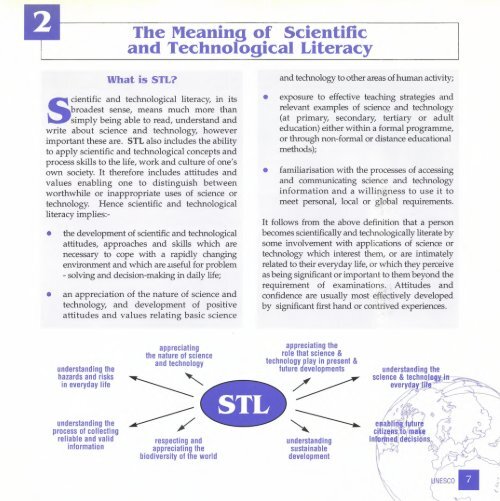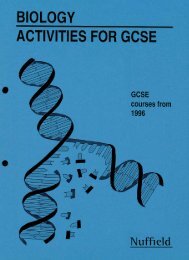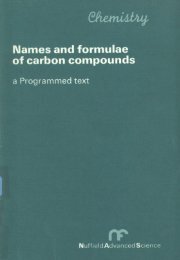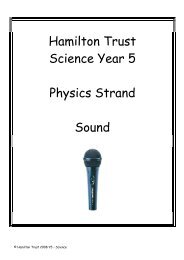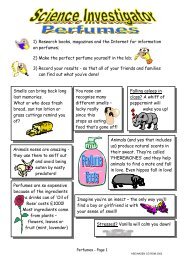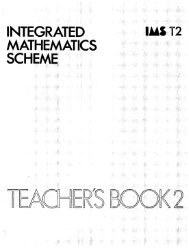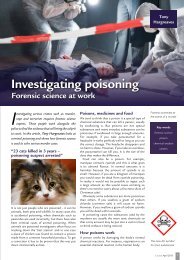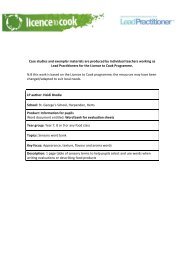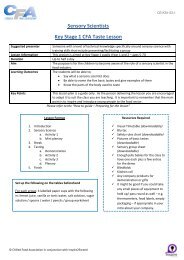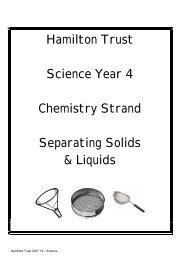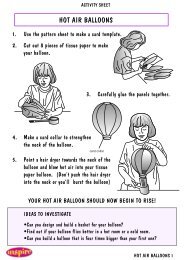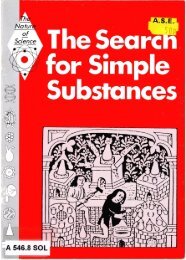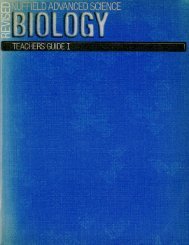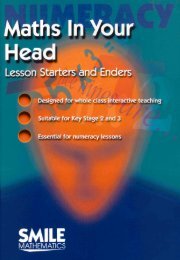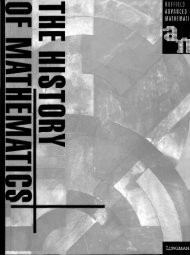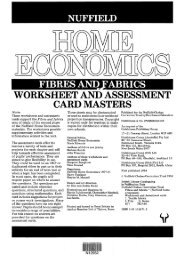UNESCO resource kit - science and technology educa...
UNESCO resource kit - science and technology educa...
UNESCO resource kit - science and technology educa...
Create successful ePaper yourself
Turn your PDF publications into a flip-book with our unique Google optimized e-Paper software.
The Meaning of Scientific<br />
<strong>and</strong> Technological Literacy<br />
What is STL?<br />
Scientific <strong>and</strong> technological literacy, in its<br />
broadest sense, means much more than<br />
simply being able to read, underst<strong>and</strong> '<strong>and</strong><br />
write about <strong>science</strong> <strong>and</strong> <strong>technology</strong>, however<br />
important these are. STL also includes the ability<br />
to apply scientific <strong>and</strong> technological concepts <strong>and</strong><br />
process skills to the life, work <strong>and</strong> culture of one's<br />
own society. It therefore includes attitudes <strong>and</strong><br />
values enabling one to distinguish between<br />
worthwhile or inappropriate uses of <strong>science</strong> or<br />
<strong>technology</strong>. Hence scientific <strong>and</strong> technological<br />
literacy implies:-<br />
• the development of scientific <strong>and</strong> technological<br />
attitudes, approaches <strong>and</strong> skills which are<br />
necessary to cope with a rapidly changing<br />
environment <strong>and</strong> which are .useful for problem<br />
- solving <strong>and</strong> decision-making in daily life;<br />
• an appreciation of the nature of <strong>science</strong> <strong>and</strong><br />
<strong>technology</strong>, <strong>and</strong> development of positive<br />
attitudes <strong>and</strong> values relating basic <strong>science</strong><br />
underst<strong>and</strong>ing the<br />
hazards <strong>and</strong> risks<br />
in everyday life<br />
underst<strong>and</strong>ing the<br />
process of collecting<br />
reliable <strong>and</strong> valid<br />
information<br />
appreciating<br />
the nature of <strong>science</strong><br />
<strong>and</strong> <strong>technology</strong><br />
respecting <strong>and</strong><br />
appreelatlnq the<br />
biodiversity of the world<br />
<strong>and</strong> <strong>technology</strong> to other areas of human activity;<br />
• exposure to effective teaching strategies <strong>and</strong><br />
relevant examples of <strong>science</strong> <strong>and</strong> <strong>technology</strong><br />
(at primary, secondary, tertiary or adult<br />
<strong>educa</strong>tion) either within a formal programme,<br />
or through non-formal or distance <strong>educa</strong>tional<br />
methods);<br />
• familiarisation with the processes of accessing<br />
<strong>and</strong> communicating <strong>science</strong> <strong>and</strong> <strong>technology</strong><br />
information <strong>and</strong> a willingness to use it to<br />
meet personal, local or global requirements.<br />
It follows from the above definition that a person<br />
becomes scientifically <strong>and</strong> technologically literate by<br />
some involvement with applications of <strong>science</strong> or<br />
<strong>technology</strong> which interest them, or are intimately<br />
related to their everyday life, or which they perceive<br />
as being significant or important to them beyond the<br />
requirement of examinations., Attitudes <strong>and</strong><br />
confidence are usually most effectively developed<br />
by significant first h<strong>and</strong> or contrived experiences.<br />
appraelatlnq the<br />
role that <strong>science</strong> &<br />
<strong>technology</strong> play in present &<br />
future developments<br />
underst<strong>and</strong>ing<br />
sustainable<br />
development<br />
NESCO •


